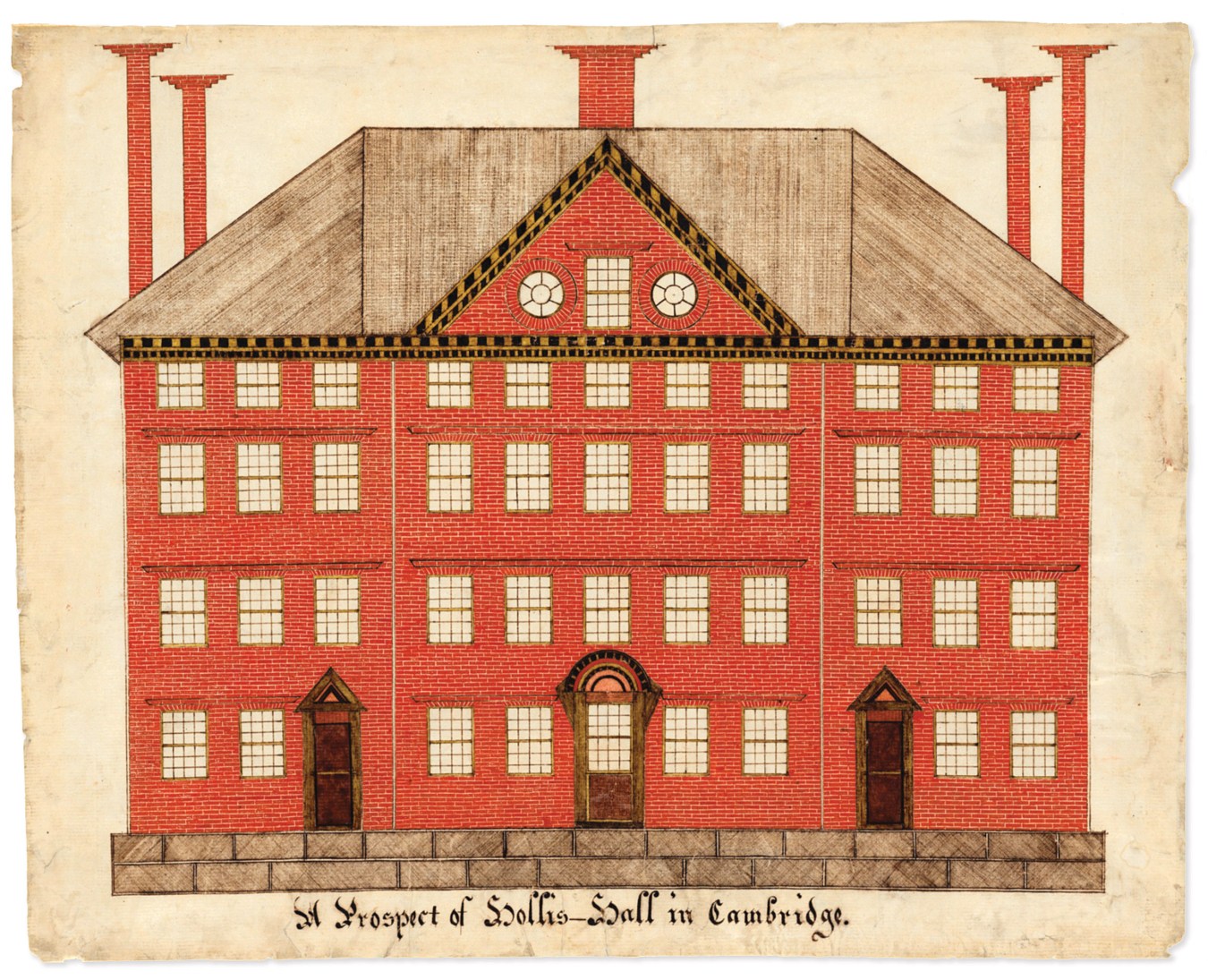“Signally marked by idleness dissipation & intemperance”
Yesterday I quoted two letters that relatives of Charles Adams wrote at the end of May 1789, discussing his predilection to get into trouble at Harvard College.
Meanwhile, in Cambridge Prof. Eliphalet Pearson wrote the following entry into his “Journal of Disorders” with the date of 29 May:
Son of prominent merchant Thomas Russell, this young man had already been suspended from the college once and fined numerous times. He never graduated. He went into a general mercantile business on Long Wharf in Boston with John Soley, but a Masonic profile of Soley said, “The result was not favorable.” Russell died in 1804, aged thirty-five, unmarried.
It looks like the faculty couldn’t determine for certain which of the other students made all the noise and thus could do nothing more than fine them for having been in company with whoever did make that noise. That didn’t stop those scholars’ college careers. George and Francis Blake and William Pepperell Sparhawk, who had tried to get the unclothed Russell back to his dorm, all graduated in 1789. Abraham Redwood Ellery graduated two years later.
Charles Adams also graduated in the summer of 1789. At his family’s urging, he didn’t stay for commencement, which usually involved celebratory dinners on an even grander scale. Instead, the Adams family whisked Charles off to New York, where he was to read the law.
[The picture above is a study by the Danish artist Johan Edvard Mandelberg (1730-1786), courtesy of the Harvard Museums.]
Meanwhile, in Cambridge Prof. Eliphalet Pearson wrote the following entry into his “Journal of Disorders” with the date of 29 May:
In the evening Russell, Adams 1, Blake first & second, Sparhawk, & Ellery, went to Bradish’s [tavern], & there supped with one Green, an Englishman. The expense was mutual.The faculty minutes officially repeated this account while leaving out the most interesting detail:
About 3 o’clock next morning the company left the house, & on their way to College grossly insulted the President by shouts & yells, challenges,imprecations, curses, threats of laying siege to,burningundermining, and burning his house, by throwing clubs & stones.
In College yard Mr. Abbot found Green & Sparhawk conducting Russell, naked, to his chamber.
Russell, being principal in these disorders, was rusticated 2d. June, & the other scholars punished 6/ each.
1. Upon examination had it appeared that Russell 1st with several others repaired on the evening of the 29th of May to the anchor tavern in Cambridge, and there, contrary to the law, supped and drank wine; that their conduct, at said tavern, was noisy and profane; that about three o’clock, the next morning, the company separated, and that a part of the same, with tumult, outcry, and abuse, highly insulted the authority and government of this Society, on their return to the College; in all which disorders and outrage said Russell was principal.This is the event that led to the recent myth of Charles Adams and friends running naked through Harvard Yard. As you can see, only one student was “naked,” and that wasn’t Adams. It was Daniel Russell, whose parallel but worse career of misbehavior at Harvard I’ve been slyly dragging along through this series.
And whereas said Russell’s whole Collegiate course has been signally marked by idleness dissipation & intemperance; notwithstanding there various advices exhortation and discipline that have been used to reclaim him, and whereas such an example is highly injurious to this Society, Therefore,
Voted, that Russell be and he hereby is rusticated.
2. Voted, that Adams 1st, Blake 1st, Blake 2d Sparhawk and Ellery be punished 6/ each for going to a Tavern and being in noisy company late at night.
Memo. The sentence upon Russell was executed publickly, in the Chapel, in the usual mode, immediately after morning prayer June 2d.
Son of prominent merchant Thomas Russell, this young man had already been suspended from the college once and fined numerous times. He never graduated. He went into a general mercantile business on Long Wharf in Boston with John Soley, but a Masonic profile of Soley said, “The result was not favorable.” Russell died in 1804, aged thirty-five, unmarried.
It looks like the faculty couldn’t determine for certain which of the other students made all the noise and thus could do nothing more than fine them for having been in company with whoever did make that noise. That didn’t stop those scholars’ college careers. George and Francis Blake and William Pepperell Sparhawk, who had tried to get the unclothed Russell back to his dorm, all graduated in 1789. Abraham Redwood Ellery graduated two years later.
Charles Adams also graduated in the summer of 1789. At his family’s urging, he didn’t stay for commencement, which usually involved celebratory dinners on an even grander scale. Instead, the Adams family whisked Charles off to New York, where he was to read the law.
[The picture above is a study by the Danish artist Johan Edvard Mandelberg (1730-1786), courtesy of the Harvard Museums.]


